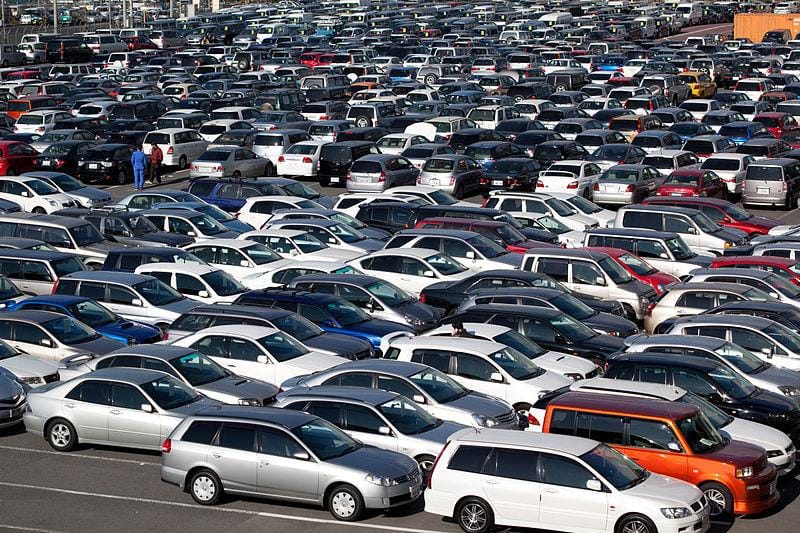Vehicle tax irks rights groups
Pressure is piling on government to rescind its decision on newly introduced fixed duty on imported vehicles described as punitive, unrealistic and restrictive.
The new tax order has aroused public anger with the Human Rights Defenders Coalition (HRDC) giving government a seven-day ultimatum to overturn it.

On the other hand, the Forum for National Development (FND) and other like-minded civil society organisations and concerned citizens have threatened to petition Parliament to repeal the order.
The Centre for Democracy and Economic Development Initiatives (Cdedi) has also asked Minister of Finance Sosten Gwengwe to justify the new order.
The outcry comes hours after importers of second-hand motor vehicles under the Car Dealers Association of Malawi warned they would go to court and challenge the decision, citing lack of consultation on the values determined on the vehicles.
The fixed tax rates target second-hand motor vehicles manufactured between 2001 and 2020. They are expected to roll out on July 15 2023.
For motor vehicles that are zero to three years old and those older than 23 years, an Ad valorem will be used where duty will be charged according to value.
In a statement issued yesterday, HRDC observed the decision on the new taxes lacked comprehensive consultation; hence, it was imperative to ensure there is tax justice to foster conducive environment for the economic welfare of Malawians.
Signed by HRDC national chairperson Gift Trapence, the statement said should government fail to rescind the decision within seven days, they will mobilise Malawians for an undisclosed action to ensure tax justice, fair taxation, and transparency in tax administration.
The statement also said while the organisation believes no country can develop without citizens being responsible for paying taxes, the same should not be punitive to them or stifle the growth of their businesses.
“Taxes must be fair and reasonable, allowing citizens and enterprises to thrive and contribute to the country’s economic progress. Tax administration should be fair, reflecting the reality of the country’s economy and the enjoyment of economic rights by the citizenry,” said HRDC in the statement.
The coalition has since asked government to reevaluate the formula used to determine the taxes as it fails to reflect the actual market value of imported vehicles.
“Under the new calculation regime, the taxes imposed far exceed the cost of the car itself. The current tax regime is inhibiting citizens from importing and owning vehicles, due to the prohibitive tax structure,” reads the statement.
On its part, FND said in its Motor Vehicle Duty Must Fall public notice that it was “shocked and disgusted by the gazetted punitive, restrictive and abhorring” Customs and Excise (Tariffs) (Amendment) (No.4) Order, 2023 and the level of arrogance demonstrated by MRA in an attempt to justify the new tax.
“This policy is retrogressive and pushing a lot of people into poverty, especially that Malawi has no public transport system.
“The new gazetted prices… entail that honest civil servants, teachers, nurses, workers, soldiers, police officers and business people will not afford to buy a motor vehicle,” reads the notice co-signed by FND chairperson Bright Kampaundi and national coordinator Fryson Chodzi, who intends to petition Parliament on July 26 2023 to force the repeal or price reduction of the duty.
In an interview, Cdedi executive director Sylvester Namiwa challenged government to produce survey findings it conducted that proved car imports were a source of forex drain.
In a separate interview, Consumers Association of Malawi executive director John Kapito described the tax as a means to punish small scale entrepreneurs and businesses.
According to the new tax regime, MRA has now pegged duty for a 2011 Daihatsu Mira with an engine capacity of 999cc (probably one of the cheapest vehicles) at K3 million using the fixed model against the K1.7 million that importers would normally pay.
For used motor vehicles not in the schedule, one needs to submit an application to MRA Commissioner General where in determining the tax payable on motor vehicles, classification of the vehicle shall be made by considering make, model, year of manufacture, cylinder capacity and body type.
Under gazetted Customs and Excise Tariffs Amendment 2023, signed by Minister of Finance and Economic Affairs Sosten Gwengwe, where a used motor vehicle is damaged in transit, the Commissioner General shall determine the specific tax payable based on the severity of the damage.
But justifying the taxes during a news conference in Blantyre on Monday, MRA deputy commissioner of customs and exercise Chimwemwe Kawalewale said the new taxes would help address valuation disputes and restrict importation of older second hand vehicles.
The new tax regime is, however, coming against a background of the continued rising inflation rate that hit a 10-year high at 29.2 percent in May. According to Reserve Bank of Malawi, this was as a result of the ever-soaring food prices.
Further, the new taxes are being introduced just after the country’s five water boards increased their tariffs by an average of 50 percent while the Electricity Supply Corporation of Malawi is also waiting in the wings for a Malawi Energy Regulatory Authority approval to effect its proposed 69.7 percent tariff.
Should Mera approve the tariff, consumers will buy electricity at an average of K177.26 per kilowatt hour (kWh) from the K104.46/kWh.
On Monday, Gwengwe told The Nation he had asked the MRA Commissioner General to invite the concerned parties, even if it means shifting the implementation date to August 1 2023.





